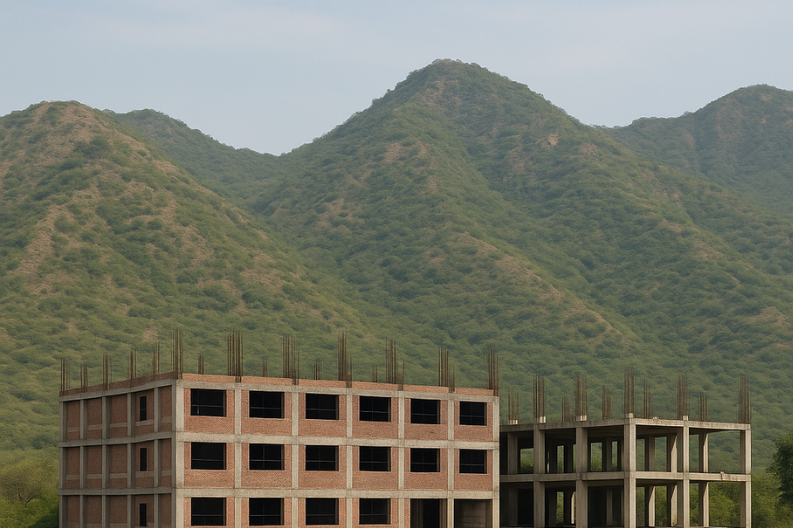The Aravali mountain range, one of the oldest in the world, stretches across Haryana and Rajasthan, serving as a crucial ecological shield for northern India. The mountains are vital for maintaining clean air, conserving biodiversity, and providing habitats for countless plant and animal species. Because of this importance, they fall under protective rules like the Punjab Land Preservation Act (PLPA), which restricts construction to prevent environmental degradation.
This fragile balance is now at risk. The illegal construction of a university within the Aravalis has sparked widespread outrage among environmentalists and local communities. Critics warn that such activity could devastate the delicate ecosystem. The issue has become even more pressing following the 2023 amendments to the Forest (Conservation) Act, which many experts believe have weakened safeguards meant to protect forests and mountainous regions.
Concerns have now reached the Supreme Court, where multiple groups have challenged both the illegal construction and the legislative changes. For many, the case represents a turning point: whether corporate interests will override environmental protections or whether the courts will uphold stricter rules to safeguard natural resources.
The Aravali hills also carry a deep historical context. For centuries, they were treated as common lands where local people grazed cattle, farmed, and collected resources. Today, this long history raises difficult questions of land ownership, particularly in areas like Mohali, Chandigarh, and Punjab. The debate over who truly holds the right to build on these lands has intensified in light of the university controversy, putting community rights and environmental justice at the center of the conflict.
What happens next will depend largely on the court’s decision. A ruling in favor of conservation could set a precedent to protect not just the Aravalis but fragile ecosystems across India. On the other hand, leniency could open the door to more encroachments, threatening clean air, water security, and biodiversity.
For environmentalists and local residents, the stakes are high. Protecting the Aravalis is about more than preserving scenic beauty—it is about ensuring future generations inherit a healthy environment. With growing awareness of illegal construction and ecological harm, communities are rallying together in the hope that their voices will help preserve one of India’s most critical natural treasures.



